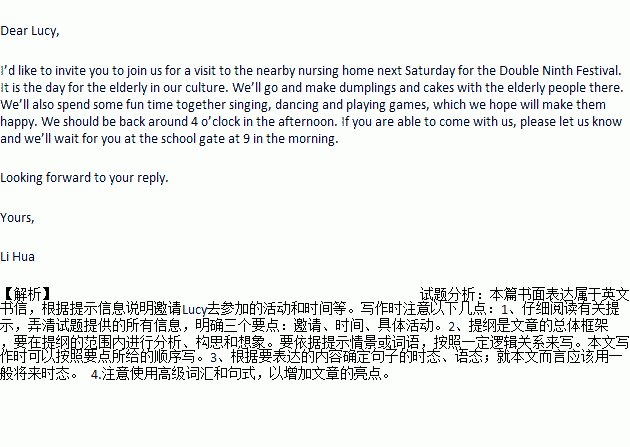题目内容
假如你是李华,计划和同学去敬老院(nursing home)陪老人们过重阳节(the Double Ninth Festival) 。请给外教Lucy写封邮件,邀她一同前往,内容包括:
1. 出发及返回时间:
2. 活动:包饺子、表演节目等。
注意:
1. 词数100左右;
2. 可以适当增加细节,以使行文连贯;
3. 结语已为你写好。
Dear Lucy,
_________________________________________________________________________________________
_________________________________________________________________________________________
_________________________________________________________________________________________
_________________________________________________________________________________________
_________________________________________________________________________________________
_______________________________________________________
Looking forward to your reply.
Yours,
Li Hua
练习册系列答案
相关题目
9."Can't you drive ______?"the man said to the taxi driver anxiously.( )
| A. | slowly | B. | fast | C. | more slowly | D. | faster |
13.Kate asked the girls to so she could hear what her husband said onthe phone.( )
| A. | slow down | B. | come down | C. | settle down | D. | break down |


 Snow Queen and The Ugly Duckling, and some end unhappily, like the Little Match Girl. In The Little Mermaid the author expressed a longing for the ordinary life that he had never had. Andersen never married, and he died in his home in Rolighed in 1875.
Snow Queen and The Ugly Duckling, and some end unhappily, like the Little Match Girl. In The Little Mermaid the author expressed a longing for the ordinary life that he had never had. Andersen never married, and he died in his home in Rolighed in 1875.